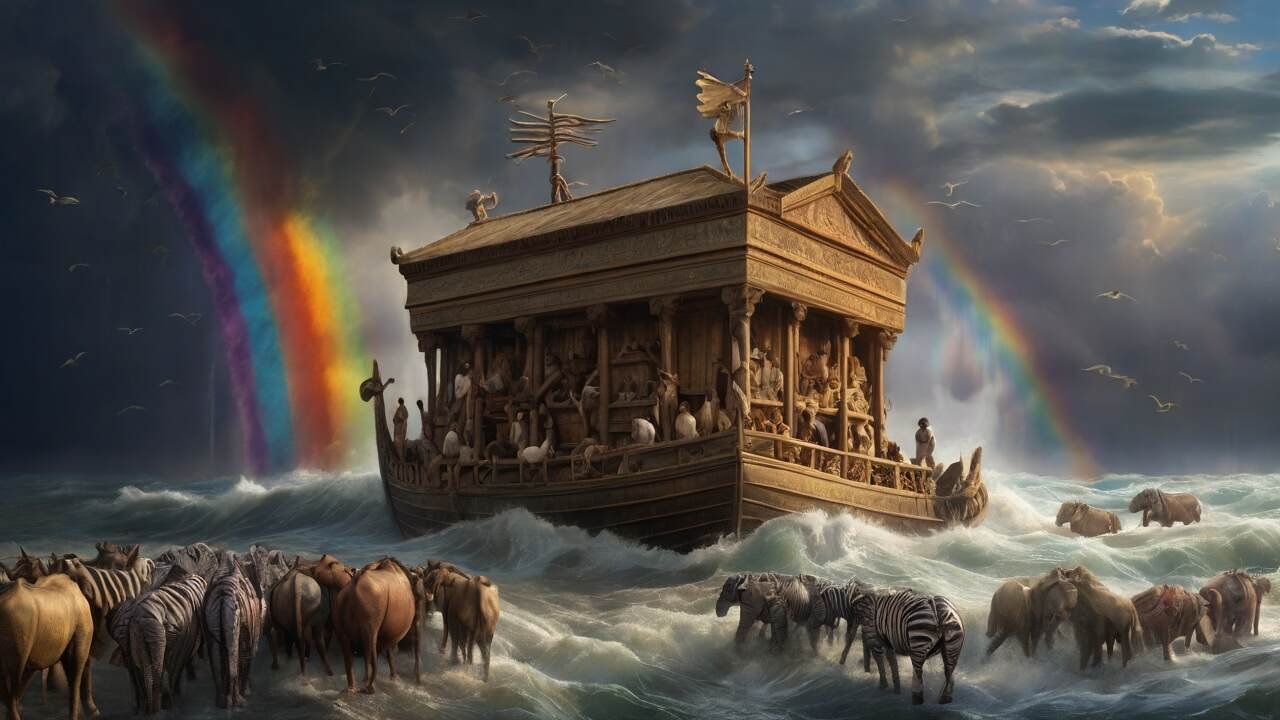The resurrection of Jesus Christ stands as the single most astounding and pivotal event in human history. Christianity, at its very core, rests upon the reality of Christ’s resurrection. This miraculous event is the cornerstone of the Christian faith, as it proves Jesus is the promised Messiah and the Son of God, affirms His physical and bodily resurrection, and offers the hope of redemption and eternal life for all who believe.
Key Takeaways
- The resurrection of Jesus Christ is the cornerstone of the Christian faith.
- The resurrection proves that Jesus is the Messiah and the Son of God.
- The resurrection affirms the physical, bodily resurrection of Jesus Christ.
- The resurrection offers the hope of redemption and eternal life for believers.
- Christianity is the only religion founded upon the literal, historical resurrection of its founder.
The Resurrection: A Foundational Truth
The foundation of Christianity rests firmly on the truth of Christ’s resurrection. The Scripture clearly affirms the centrality of this pivotal event, which is the cornerstone of the Christian gospel. As the apostle Paul states in 1 Corinthians 15, if Christ did not rise from the dead, the Christian faith would be in vain.
The good news that Jesus died for our sins and rose again on the third day is the core of the Christian message. This remarkable truth offers believers the hope of life beyond the grave, transforming the foundation of Christianity into a living, vibrant faith.
Scripture Affirms the Centrality of Christ’s Resurrection
The Scriptures are unequivocal in their declaration of the centrality of Christ’s resurrection. From the prophecies of the Old Testament to the eyewitness accounts of the New Testament, the gospel message consistently points to the resurrection as the crowning event in God’s plan of redemption.
The Good News Rests on the Certainty of the Resurrection
The good news of Jesus Christ’s death and resurrection is the foundation upon which the entire Christian faith is built. Without the certainty of life beyond the grave that the resurrection provides, the foundation of Christianity would be rendered meaningless.
“If Christ has not been raised, your faith is futile; you are still in your sins.” – 1 Corinthians 15:17
The gospel message of salvation rests on the truth that Christ has indeed conquered death, offering believers the hope of eternal life and a restored relationship with God.
Reflect on the significance of Jesus’ resurrection in Christianity
The resurrection of Jesus Christ is the cornerstone of Christian faith, affirming His identity as the promised Messiah and Son of God. This pivotal event not only proves that Jesus is the Savior foretold in Old Testament prophecies but also underscores the physical, bodily nature of His resurrection.
Proves Jesus is the Messiah and Son of God
The resurrection validates the Messianic claims of Jesus, fulfilling the prophecies that the Messiah would suffer, die, and rise again. This demonstrates that Jesus is the long-awaited Savior, the Son of God, who came to redeem humanity. His triumph over death confirms His divine nature and authority, establishing Him as the true Messiah and the centerpiece of God’s plan of salvation.
Affirms the physical, bodily resurrection
The Gospels record that after His resurrection, Jesus appeared to His Apostles and hundreds of other followers in His physical, resurrected body. This affirms that the resurrection was not merely a spiritual event but that Jesus was restored to life in His actual, tangible form. This bodily restoration foreshadows the eventual resurrection of all believers, where our physical bodies will be transformed and reunited with our souls, offering the promise of eternal life.
The significance of Jesus’ resurrection cannot be overstated. It proves that He is the Messiah, the Son of God, and that His sacrifice on the cross was accepted by the Father, securing our redemption. The physical nature of His resurrection also gives us the assurance that our own bodies will one day be raised, restored, and transformed, granting us the hope of eternal life with Christ.
“Jesus said to her, ‘I am the resurrection and the life. Whoever believes in me, though he die, yet shall he live.’”
John 11:25
The Resurrection: Unique and Unparalleled
Among all religious figures, Jesus’ resurrection stands out as a truly unique and unparalleled event. While others have claimed to raise the dead, Jesus is the only one who conquered death by His own power, rising from the grave on the third day. No other religious leader has experienced a physical, bodily resurrection like Jesus.
This remarkable event sets Jesus apart as the true Savior who has the power to offer new life and victory over humanity’s greatest enemy, death itself. The resurrection affirms Jesus’ divinity and proves that He is the promised Messiah, the Son of God, whom no other religious figure can match.
Jesus Alone Conquered Death by His Own Power
Unlike other religious leaders who may have been revered for their teachings or moral example, Jesus’ resurrection demonstrates His unparalleled authority and divine nature. He alone had the power to overcome the grave and rise again, testifying to His triumph over sin and death.
“I am the resurrection and the life. Whoever believes in me, though he die, yet shall he live.”
– John 11:25
The resurrection is the ultimate proof of Jesus’ unique identity and the fulfillment of God’s plan for salvation. It is a testament to His unparalleled power and the certainty of the good news He proclaimed.
The unparalleled nature of Jesus’ resurrection sets Him apart from all other religious figures and underscores His unique role as the Savior of humanity. It is a pivotal event that lies at the very heart of the Christian faith, offering hope, redemption, and the promise of eternal life to all who believe.
Foretold in Prophecy
The resurrection of Jesus Christ, the cornerstone of Christian faith, was not a new revelation in the New Testament. For thousands of years, Old Testament prophecies had foretold the coming of the Messiah, who would redeem humanity from sin. Passages in the books of Genesis, Job, Psalms, and Isaiah point to the Messiah’s suffering, death, and triumphant resurrection.
Old Testament Prophecies Point to the Coming Messiah
The Old Testament is filled with prophecies that foreshadowed the life, death, and resurrection of Jesus Christ. As early as the book of Genesis, the promise of a Savior was given, with the prediction that the Messiah would be “the seed of a woman” who would “crush the serpent’s head” (Genesis 3:15). The book of Job also spoke of the Messiah’s resurrection, declaring, “I know that my Redeemer lives, and that in the end, he will stand on the earth” (Job 19:25).
The Psalms contain numerous prophecies about the Messiah’s suffering and eventual triumph, including the vivid description of the crucifixion in Psalm 22. The book of Isaiah is perhaps the most comprehensive in its foretelling of the Messiah, including the famous prophecy of the “Suffering servant,” who would be “pierced for our transgressions” and “crushed for our iniquities” (Isaiah 53:5).
Jesus Himself Foretold His Death and Resurrection
Not only were the Old Testament prophets guided by God to foretell the coming of the Messiah, but Jesus himself repeatedly predicted that He would suffer, die, and rise again on the third day. Throughout His ministry, Jesus spoke openly about the divine plan of salvation, affirming that His crucifixion and resurrection were essential to fulfilling God’s purpose (Matthew 16:21, Mark 8:31, Luke 9:22).
The fulfillment of these ancient prophecies in the life, death, and resurrection of Jesus Christ is a powerful testimony to His identity as the long-awaited Messiah. The convergence of these foretold events confirms the divine nature of the gospel message and the centrality of Christ’s victory over sin and death.

| Old Testament Prophecy | Fulfillment in Jesus |
|---|---|
| The Messiah would be “the seed of a woman” (Genesis 3:15) | Jesus, born of a virgin (Luke 1:26-35) |
| The Messiah would be “pierced for our transgressions” (Isaiah 53:5) | Jesus was crucified (John 19:16–37) |
| The Messiah would rise from the dead (Psalm 16:10, Job 19:25) | Jesus rose from the dead on the third day (Matthew 28:1–10) |
The Crucifixion: Prelude to Victory
The Crucifixion of Jesus, though a profoundly tragic and agonizing event, was the necessary prelude to His ultimate victory over death and sin. Christ’s suffering and death on the cross served as the ultimate sacrifice for the atonement of humanity’s sins, fulfilling the Old Testament prophecies and demonstrating God’s profound love and plan to redeem the world through the sacrifice of His own Son.
The Passion of Christ paved the way for the triumph of the resurrection, as the Crucifixion represented humankind at its worst but also revealed the depth of God’s redemptive power. Through His willing suffering and death, Jesus became the spotless Lamb of God, the perfect sacrifice that would take away the sins of the world.
The Ultimate Sacrifice
The Crucifixion was the culmination of Jesus’ earthly ministry, where He willingly laid down His life to fulfill the divine plan of salvation. His suffering and death on the cross represented the ultimate sacrifice, demonstrating the depths of God’s love and the power of atonement.
“He himself bore our sins” in his body on the cross, so that we might die to sins and live for righteousness; “by his wounds you have been healed.” (1 Peter 2:24)
Through the Crucifixion, Jesus conquered sin and death, paving the way for the victory of the resurrection. His willingness to endure the suffering and shame of the cross revealed the magnitude of His love for humanity and the transformative power of His sacrifice.
The Crucifixion stands as a powerful reminder of the inextricable link between suffering and redemption and the triumph of God’s love over the forces of evil and death. It is this profound truth that lies at the heart of the Christian faith and the foundation upon which the hope of eternal life is built.
The Power of the Resurrection
The resurrection of Jesus Christ offers the transformative power to restore humanity and grant us new life in Christ. As the apostle Paul states in 1 Corinthians 15, “if Christ has not been raised, your faith is futile; you are still in your sins.” But because Christ did rise from the dead, we have the assurance of redemption and the promise of eternal life.
Restores Humanity and Offers New Life in Christ
The resurrection demonstrates God’s ultimate victory over sin and death. Through faith in the resurrected Christ, believers can experience the resurrection power in their own lives, being raised to new life and transformed by the indwelling Holy Spirit. This power to overcome the grave provides hope and purpose, empowering us to live with Resurrection power, no longer enslaved to the futility of this world.
Provides Assurance of Redemption and Eternal Life
The resurrection of Jesus is the cornerstone of the Christian faith, affirming that our redemption has been secured and that we have the promise of eternal life. As 1 Corinthians 15 declares, “if Christ has not been raised, your faith is futile.” But because He has risen, we can have hope that we too will be raised to new and everlasting life with God.
“But Christ has indeed been raised from the dead, the firstfruits of those who have fallen asleep. For since death came through a man, the resurrection of the dead comes also through a man. For as in Adam all die, so in Christ all will be made alive.” (1 Corinthians 15:20-22)
The power of the resurrection is the foundation of our faith, offering the assurance that our sins have been forgiven and that we can experience the transformative work of the Holy Spirit by being raised to new life in Christ.
Conclusion
The resurrection of Jesus Christ stands as the cornerstone of the Christian faith, setting it apart from all other religions. This singular event in human history affirms that Jesus is the promised Messiah and the Son of God, and it validates the physical, bodily nature of His resurrection. Foretold in Old Testament prophecy and confirmed by Jesus’ own words, the resurrection signifies God’s triumph over sin and death, and it offers the transformative power to restore humanity and grant new life in Christ.
The profound significance of the resurrection is the foundation upon which the entire Christian faith rests. It provides the assurance of redemption and the promise of eternal life for all who believe, instilling a profound hope that transcends the limitations of this world. As the cornerstone of Christian belief, the resurrection of Jesus Christ stands as a testament to the love, grace, and power of God, inspiring believers to live with unwavering faith and unshakable conviction.
In the face of the challenges and uncertainties of our modern world, the message of the resurrection shines as a beacon of hope, guiding us towards a deeper understanding of the divine and the ultimate purpose of our existence. By embracing the transformative power of this pivotal moment in history, we find the strength to navigate life’s trials and the courage to share the good news with a world in need of redemption.
FAQ
What is the significance of Jesus’ resurrection in Christianity?
The resurrection of Jesus Christ is the single most astounding event in human history. It is the cornerstone of the Christian faith, as it proves Jesus is the Messiah and Son of God, affirms His physical and bodily resurrection, and offers hope of redemption and eternal life for believers. Christianity is the only religion founded upon the literal, historical resurrection of its founder.
Why is the resurrection of Jesus so central to the Christian faith?
The foundation of Christianity rests in Christ’s death and resurrection. The good news that Jesus died for our sins and rose again on the third day is the core of the Christian gospel. The reality of Jesus’ resurrection affirms the truth of the gospel and offers believers the hope of life beyond the grave.
How does the resurrection prove Jesus is the Messiah and Son of God?
The resurrection validates Jesus’ claims about His identity and mission, affirming He is the promised Messiah and Son of God. It also affirms the physical, bodily nature of His resurrection, as He appeared to the Apostles and hundreds of others in His resurrected body.
What makes Jesus’ resurrection unique compared to other religious figures?
Jesus is the only religious leader who conquered death by His own power, rising from the grave on the third day. No other religious figure has experienced a physical, bodily resurrection like Jesus, setting Him apart as the true Savior who has the power to offer new life and victory over death.
How were the life, death, and resurrection of Jesus foretold in the Old Testament?
Passages in Genesis, Job, Psalms, and Isaiah point to the coming Messiah who would redeem humanity from sin. Jesus himself also repeatedly predicted that He would suffer, die, and rise again on the third day, affirming the divine plan of salvation.
How does the crucifixion of Jesus connect to His ultimate victory over sin and death?
The crucifixion of Jesus, though a horrific and agonizing event, was the necessary prelude to His ultimate victory over death and sin. Christ’s suffering and death on the cross fulfilled Old Testament prophecies and served as the ultimate sacrifice for the atonement of humanity’s sins.
What power does the resurrection of Jesus offer to believers?
The resurrection of Jesus Christ offers the power to restore humanity and grant new life in Christ. It demonstrates God’s victory over sin and death and provides hope for believers that they too will be raised to new life. Through faith in the resurrected Christ, we can experience the transformative power of the resurrection in our own lives








